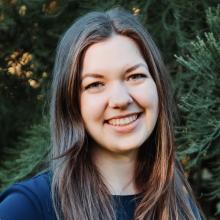What are your main responsibilities or activities in your current position?
Currently I conduct research and experiments on the product that Kindred Cultures makes in order to develop the product and fit the needs of the company. Additionally, I work as an assistant brewmaster overseeing daily fermentations for the production of our product.
How does your current work relate to your graduate degree?
Before starting my Masters of Food Science at UBC I had an undergraduate degree in Microbiology. This peaked my interest into Food Science but I didn’t yet have experience in that specific field. This Master’s program taught me a lot about the Food Science field. Considering I work for a startup company I utilize a lot of the information I learnt for product development and food law and regulations. This program also offers a practicum work term which allowed me to get more experience in the field and put the things I learnt into practice in a safe environment.
What do you like and what do you find challenging about your current position?
Being a new graduate with little experience in this field the most challenging part of my current role is pioneering and designing experiments since this is a manager type position and I’m working as it from the start. However, opportunities where you are challenged the most provide the most growth so I feel fortunate to have this experience in my career.
Is your current career path as you originally intended?:
There are so many career paths in the food sector so I think it’s common that your path my change. I have always been interested in fermentation and functional foods so I made sure to find volunteer and work opportunities related to this field. However, I think it’s a good idea to remain open minded to the jobs that are in the food sector since you never know what opportunities may arise and they may alter your career trajectory.
What motivated you to pursue graduate work at UBC?
I completed the co-op program through my undergraduate degree which provided some work experience, however, I found it an intimidating industry to find work in so felt that completing this professional masters with the practicum component would make me even more desirable for hire. Additionally, for my personal experience I didn’t have a food science degree so being able to connect my knowledge in microbiology with the food science I learnt in the program made me more well rounded and better suited to enter the food sector.
What did you enjoy the most about your time as a graduate student at UBC?
I’ve always been a hands on learner so I enjoyed the lab work. There was also a lot of group work and presentations in the program that allowed me to meet many new and interesting people while also preparing me for a collaborative work environment.
How did the graduate degree at UBC help you achieve your career and/or personal development goals?:
Without taking the MFS graduate program it would have been much harder for me to get a job in the specific field I’m interested in right now. There is a lot of competition for food tech positions so to have a masters and more work experience under your belt certainly helps. The program also gives you a lot of great connections and resources to use as you enter the workplace which makes you feel more prepared and less intimidated.
What key things did you do, or what attitudes or approaches did you have, that contributed to your success?
I think for any masters or post-graduate program it is important to use all the resources available to you. This means your peers, professors and industry. Many people entering this specific program have very diverse backgrounds so to be able to work with your peers and get to know them you have the opportunity to learn even more. It’s also important to gain rapport with your professors since all of the professors in the MFS program have had prestigious careers and have many interesting experiences. They all have a wealth of knowledge and love to share advice and insight with students. Lastly, there are many food science associations in Vancouver and ways to meet and network with people. I think it’s important to stay connected and volunteer which may give you a leg up in the future.
What is your best piece of advice for current graduate students preparing for their future careers?
It’s important as a new professional and recent graduate to stay open to new experience. Entering into the field post graduate is difficult and you may not get the position you want right from the start but any experience can be a good experience if you put the work in. It’s important to remember that where you start won’t be where you end up if you have the drive and determination - it is just part of your journey. So my piece of advice is to remain open minded and to make sure you meet new people whenever you can so you can make the best impression.
